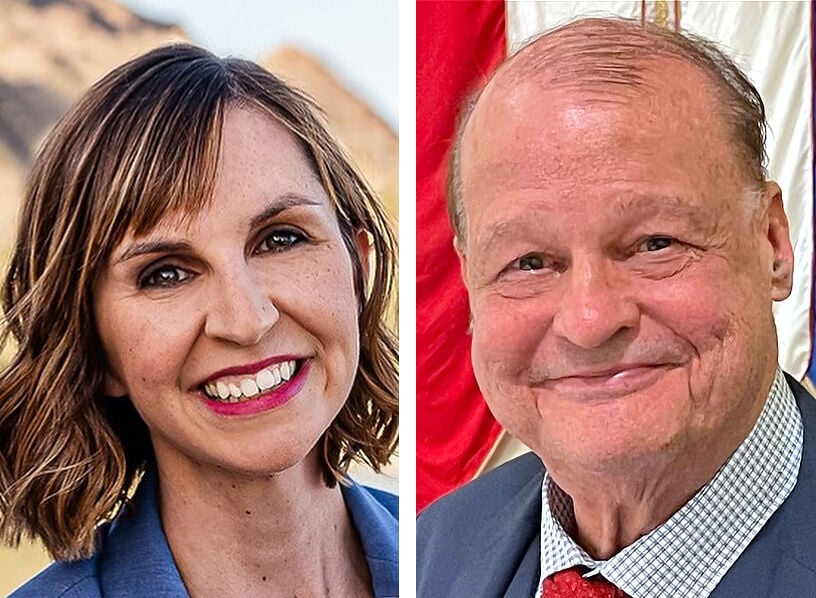Nearly 6,500 Arizona children have applied for the new universal vouchers to attend private and parochial schools at taxpayer expense.
And it appears the vast majority are students whose parents already are paying for them to go there.
The legislation approved earlier this year was billed by supporters as providing more choices to students stuck in neighborhood public schools. But the Arizona Department of Education says 75% of those applications are from children not in public schools.
That is drawing concern from the state superintendent of public instruction.
“The ESA program was intended to provide more options for children with special needs or unique circumstances, like military families,’’ said Kathy Hoffman.
“With the current status of applicants, it is not achieving those goals,’’ she continued. “Instead, it is just a taxpayer funded coupon for the wealthy.’’
Republican Gov. Doug Ducey signed the massive expansion of the program into law.
His press aide, C.J. Karamargin, would not answer questions of whether Ducey is disturbed by the fact that the vouchers are being sought by children already attending private and parochial schools, presumably using available family resources. Instead, he said too much should not be read into the report.
“This is really early in this process,’’ Karamargin said.
“These numbers are an early indication of the popularity of this program,’’ he said. “It is just getting started.’’
Costs anticipated
What it already shows is more than $34 million of public funds would replace those private dollars, assuming an average voucher of $7,000.
Those numbers should come as no surprise.
Even before HB 2853 became law, legislative budget analysts estimated the first-year cost of providing vouchers to those already in private schools or those being home schooled would approach $30 million. That doesn’t count another $2.2 million in new administrative costs.
And by the third year, the report said, the price tag for paying for kids picking up vouchers versus paying their own way will approach $120 million.
That is above and beyond the $176 million the state is now paying for vouchers for students who have been eligible under prior standards.
Arizona lawmakers approved the first vouchers in 2011. Backers said they were necessary for students with special needs who could not get an adequate education in public schools.
State and federal courts ruled that the structure of the plan — providing the money as vouchers for the parents to use — means it does not violate state constitutional provisions forbidding the state from giving money to private and parochial schools.
Since that time there has been an incremental expansion of eligibility, to the point where vouchers have been available to foster children, children of military families, reservation residents and students in schools rated D or F.
The new law scraps all preconditions, potentially allowing vouchers to go to all 1.1 million students now in public schools.
Competition praised
Proponents have defended the change as providing more options for parents beyond neighborhood schools. They include former state schools chief Tom Horne, a Republican, who is running against Democrat Hoffman in the November election to get his old job back.
“My view is competition always makes everybody better,’’ Horne said. “That’s why the United States is prosperous and the Soviet Union was not.”
Horne said he saw the same thing during his 24 years on the board of Paradise Valley Unified School District — that the advent and expansion of charter schools, privately run public schools, “made us better.’’
Opponents said such comparisons with private schools are not valid, and not only because private schools can accept only the students they want. There’s also the question of accountability.
An early version of the legislation would have required students in private and parochial schools using these vouchers of state funds take some standardized tests, similar to those already administered in public schools.
The results, as in the case of public schools, would have been reported on an aggregate basis.
No standardized testing required
That requirement was removed from the final version by Rep. Jake Hoffman, R-Queen Creek, who said what’s happening at private schools is none of the government’s business.
But voucher foes like Rep. Kelli Butler, D-Paradise Valley, said the fact that tax dollars will be flowing to those schools is precisely what gives the state an interest.
“We will not know if students are using our tax dollars — $7,000 is the typical award (per pupil) — if they’re using that money to learn anything,’’ she said.
Horne said he is not concerned about the fact that so many of the requests for vouchers are coming from families whose kids already are in private and parochial schools.
“All of these people already pay taxes,’’ he said.
Anyway, Horne said, the alternative could be some of these children moving to public schools which get more per-student state aid than the typical voucher provides, meaning a higher cost to taxpayers.
All this presumes the new law will take effect as scheduled on Sept. 24.
Attempt to give voters a say
Foes of expansion, led by the group Save Our Schools Arizona, are circulating petitions to delay implementation until voters get the last word. If they get 118,823 valid signatures by Sept. 23 the law could not take effect until after the 2024 election.
The record suggests voter antipathy toward more vouchers.
Lawmakers approved a vast expansion of the program in 2017, only to have the measure referred to the 2018 ballot, where it was rejected by a margin of close to 2 to 1.
Beth Lewis, executive director of Save Our Schools Arizona, said she is “optimistic’’ there will be enough signatures collected to survive any challenge.





